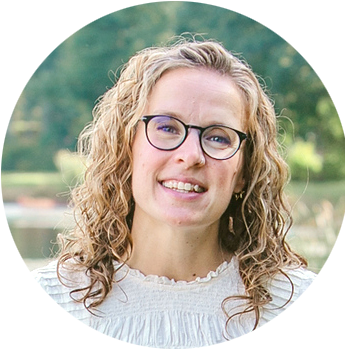3 Hours | 3 CEs
The on-demand professional training program on The Five Question Model to Conducting Juvenile Competency Evaluations is presented by Ivan Kruh, Ph.D. and Christina R. Riggs Romaine, Ph.D. in partnership with The National Youth Screening & Assessment Partners (NYSAP).
Evaluation quality is enhanced when a conceptual model is used that guides data gathering, data interpretation, and the communication of findings in a manner consistent with scientific, empirical, and ethical standards. The most widely accepted model for guiding evaluations of competence to stand trial was offered by Thomas Grisso in 1986 and was applied to juvenile competence evaluations in 2005. The model lays out Functional, Causal, Contextual, Conclusory, and Remediation questions that, when considered and opined upon by evaluators in a systematic manner, yield an effective and informative evaluation and a report that can assist the court. In this program, each of the questions are be explained, relevant research and forensic concepts are offered, and the process of forming opinions within each question is modeled so that participants can apply it to their evaluations.

Intended Audience
This on-demand professional training program is intended for mental health and other allied professionals

Experience Level
This on-demand professional training program is appropriate for beginner, intermediate, and advanced level clinicians.

CE / CPD Credit
APA, ASWB, CPA, NBCC Click here for state and other regional board approvals.
Learning Objectives
Upon completion of this program you will be able to:

Describe how competence standards in juvenile courts sometimes differ from those in criminal court, as well as how these differences may impact the evaluation process

Describe why normal developmental immaturity can yield competency deficits, both directly and in interaction with mental health symptoms and cognitive limitations

Describe the unique types of competency-related deficits adolescents may demonstrate in the areas of factual understanding, rational appreciation, assisting counsel, and legal decision-making

Describe how relationships with caregivers, peers, and legal personnel can impact the context within which juveniles must be able to function competently

Describe the unique challenges of remediating the incompetence of youths and how this may impact their opinions about “restorability.”

Curriculum
1. Introduction
2. Competency to Stand Trial and Juvenile Competency to Proceed
3. Grisso's Model
4. Functional Question
5. Casual Question
6. Q & A
7. Contextual Question
8. Conclusory Question
9. Remediation Question
Develop a Specialty Area of Practice
Transforming mental health professionals into experts
Expert Instructors
Professional training developed and delivered by the field's leading experts

CE Credit
Earn CE credit for meaningful professional training that will elevate your practice
Convenience & Flexibility
Learn at your own pace, from wherever you might be!
Program Partner
The National Youth Screening & Assessment Partners (NYSAP)
The National Youth Screening & Assessment Partners (NYSAP) is a technical assistance and research group, dedicated to helping juvenile justice and related programs nationwide. Since 2000, NYSAP has assisted juvenile justice systems to make decisions about adolescents that are consistent with youths’ health and positive development and with the community’s interests by helping systems use reliable, evidence-based methods for screening and assessment. We provide training, technical assistance, and quality implementation services to agencies and programs in the areas of risk screening and risk-needs assessment, behavioral health screening, and competence to stand trial evaluations. NYSAP professionals have played a key role for 25 years in research on juveniles’ competence to stand trial and in developing juvenile competence standards for forensic clinical practice, law, and policy. In response to the growing demand for juvenile competence evaluations nationally, we provide consultation to assist agencies in developing or refining their juvenile competence service delivery system, as well as creating and conducting quality assurance procedures. We train clinicians and juvenile justice stakeholders (e.g., judges, attorneys, and community partners) in practice standards for conducting high-quality juvenile competence evaluations.

CE Sponsorship Information
Palo Alto University, Continuing and Professional Studies (CONCEPT) is approved by the American Psychological Association to sponsor continuing education for psychologists. Palo Alto University, Continuing and Professional Studies (CONCEPT) maintains responsibility for this program and its content. Palo Alto University, Continuing and Professional Studies (CONCEPT) is approved by the Canadian Psychological Association to offer continuing education for psychologists. Palo Alto University, Continuing and Professional Studies (CONCEPT), SW CPE is recognized by the New York State Education Department’s State Board for Social Work as an approved provider of continuing education for licensed social workers #SW-0356 and the New York State Education Department’s State Board for Mental Health Practitioners as an approved provider of continuing education for licensed mental health counselors. #MHC-0073. Palo Alto University, Continuing and Professional Studies (CONCEPT) has been approved by NBCC as an Approved Continuing Education Provider, ACEP No. 6811. Programs that do not qualify for NBCC credit are clearly identified. CONCEPT Professional Training, #1480, is approved to offer social work continuing education by the Association of Social Work Boards (ASWB) Approved Continuing Education (ACE) program. Organizations, not individual courses, are approved as ACE providers. State and provincial regulatory boards have the final authority to determine whether an individual course may be accepted for continuing education credit. CONCEPT Professional Training maintains responsibility for this course. ACE provider approval period: 11/22/23-11/22/26. Social workers completing this course receive (clinical or social work ethics) continuing education credits.



